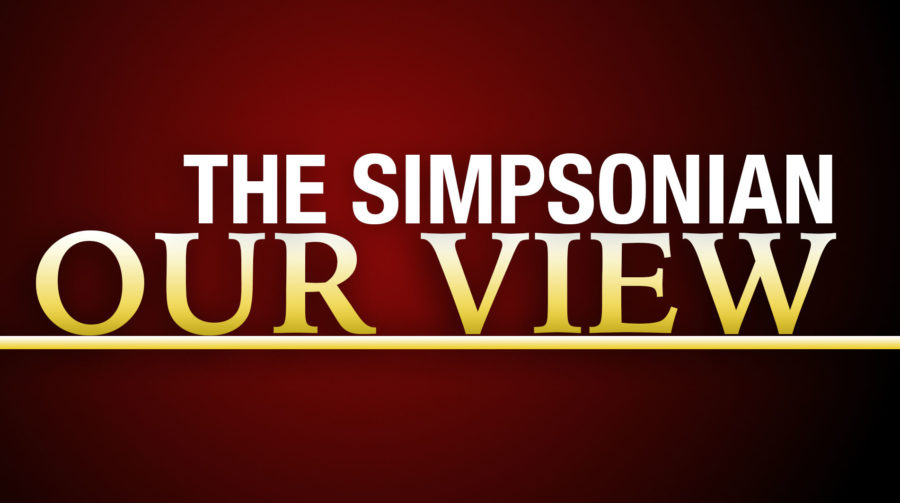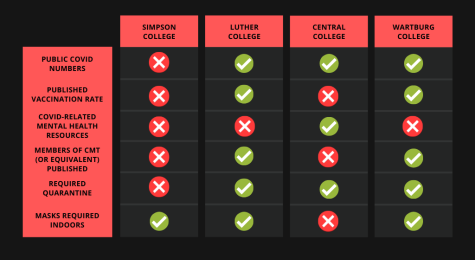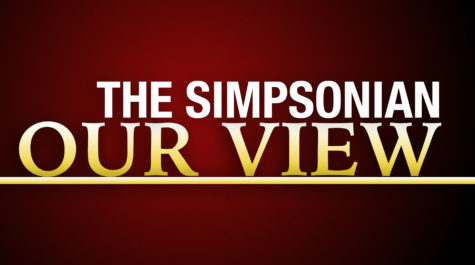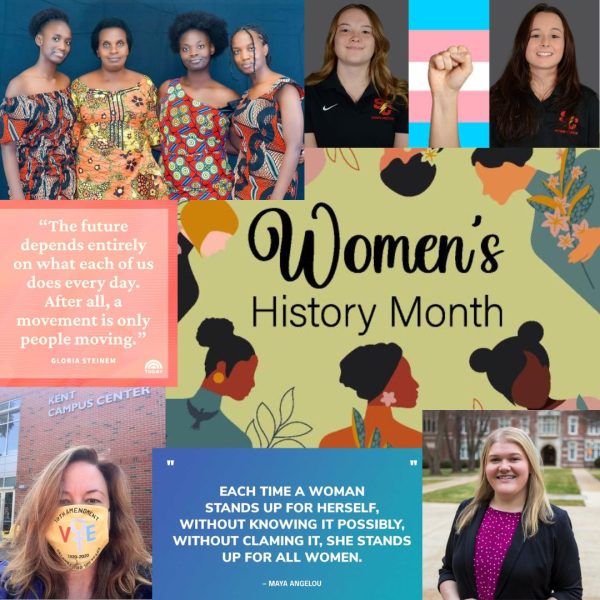Our View: The importance of the First Amendment
It’s First Amendment week at Simpson College. We’ve just wrapped up (literally) our Freedom of Speech Wall and finished the annual Constitution Day lecture. So, to close out the week, we thought as the Simpsonian’s Editorial Board, we’d give our thoughts on why the First Amendment is so important.
The question of, ‘Why is the First Amendment necessary?’ is easy to answer. It guarantees us our right to report, but it’s a bit more complex than that. It also ensures you, as readers, can respond to our work and the work of other journalists with criticism without consequences.
The First Amendment guarantees U.S. citizens the right to speech, religion, press, assembly, and the right to petition the government. Despite the magnitude these rights themselves carry in U.S. society, they trickle down even further to college campuses.
According to a study run by the Knight Foundation and Gallup, close to 7 in 10 college students (approximately 68%) regard citizens’ free speech rights as “extremely important” to democracy. The same study found that roughly the same percentage (69%) believe an inclusive society that is welcoming to diverse groups is “extremely important.”
The Simpson College community merged these two values phenomenally last year on Sept. 2 during our college’s protest for racial justice. We were able to assemble and speak out against the faults and inadequacies of our own institution without fear of disciplinary action—all thanks to the powers vested in us by the First Amendment.
At the same time, it is also important to acknowledge the longstanding, ongoing issue of who gets to enjoy free speech rights in the United States, how these rights are enforced, and whose voices are being heard.
When it comes to standing up for racial injustice, the list of free speech violations is not a short one. While reading a list of names of Black lives taken by police, valedictorian Rooha Haghar’s mic was turned off in the middle of her speech. A federal judge blocked an “anti-riot law” on the grounds that it violates protestors’ First Amendment rights. The over-policing of protests, organizers and activists – such as in Ferguson, is well documented.
There’s an irony in championing liberty in expression for all while ignoring those who have not historically been able to enjoy free speech or participate in the so-called marketplace of ideas equally. It is important to properly discuss and engage the First Amendment and decide what it means–reckon with its blindspots as well as its privileges–rather than celebrate it uncritically.
Written and broadcasted media challenges the actions of those in power, even if the reporting strives for objectivity, could be subjected to legal action above libel.
According to the Freedom Forum Institute, 64% of people agree public school students should be allowed to report on controversial issues in their student newspapers without the approval of school authorities, compared to 34% who don’t agree. This shows that students appreciate their voices heard as well, without the censorship given by authorities.
Despite this, the First Amendment does not always give students the right to say whatever they feel needs to be said in schools. If a school, like Simpson College, is privately owned, First Amendment rights do not apply to students; they’re not a guaranteed right for private schools – however, this should not stop you from petitioning to say what you feel needs to be said.
Additionally, the First Amendment gives you the right to criticize us – something of which we are not immune. If you have a problem, you have the right to express it. Whether that be on Facebook, Twitter, Instagram or email – you have the power to use your voice.
We encourage you to use your First Amendment and use it right. Be informed and be passionate.
This is why The Simpsonian hosts First Amendment week each year.


















